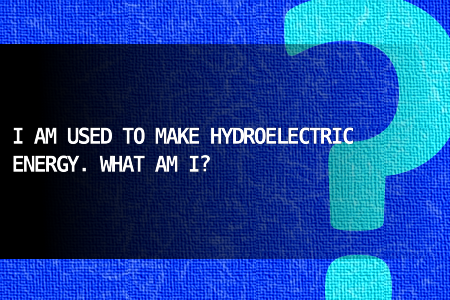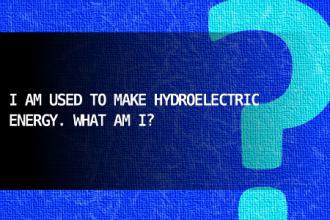I am used to make hydroelectri...
Brain Teasers
[2096] I am used to make hydroelectri... - I am used to make hydroelectric energy. What am I? - #brainteasers #riddles - Correct Answers: 118 - The first user who solved this task is Djordje Timotijevic

2016-03-31
